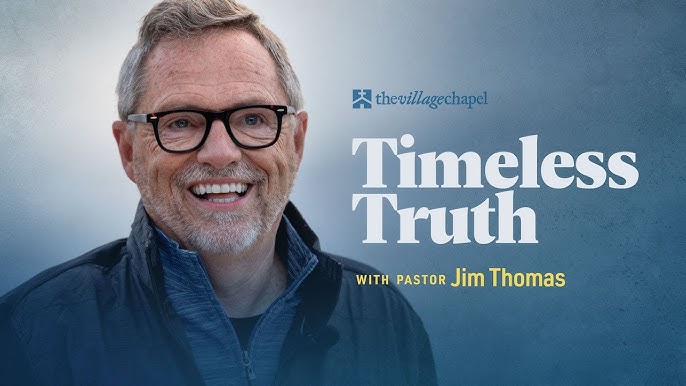The Sermon on the Mount, Part 17
Welcome to Timeless Truth with Pastor Jim Thomas. This season, Pastor Jim is leading us in a study of The Sermon on the Mount.
The Sermon on the Mount is found in Matthew, chapters 5-7.
We have now come to one of the most misunderstood and misquoted verses in all of the Bible: Matthew 7:1 “Do not judge lest you be judged yourselves.”
Jesus tells us “Do not judge” but modern and post-modern thinking interprets that three word sentence thusly: “Don’t judge me.” Is that what Jesus was saying? Or, was Jesus regulating our human proclivity towards self-appointment as the ultimate judge of others. And by me saying “our” I don’t just mean the religious members of humanity, I mean all of humanity. Self-appointed judges can be found among both the religious and the irreligious. So too can hypocrites and self-righteous prigs. Jesus issues a warning about our tendency toward judgmentalism, hypocrisy and self-righteousness, no matter which group we are part of.
Who alone has the clarity of vision and the impartiality to judge fairly? History makes it undeniably clear that human beings are incapable of that kind of moral clarity with impartiality. Our current cultural climate is so intellectually confused and morally bankrupt we can’t even arrive at consensus on what we mean by a phrase like “the common good.”
“…unless there is some agreed-upon standard for the true, the beautiful, and the good, there can be no absolute standard by which to condemn ‘evil’ behavior.” .”
Kenneth Boa, The Perfect Leader
We need outside help. We need an impartial, truly wise and thoroughly righteous judge. I seek to persuade you that the God of the Bible is the only One capable and worthy to be that kind of a wise, thoroughly righteous, ultimate judge of all.
And here’s the good news from Jesus in the SOM: The One who will be our Judge also wants to be our Father!
“For the believer, the knowledge that God is Father transforms his view of him as Judge, and the knowledge that he is Judge fills him with awe that such a God is also his Father.”
Sinclair Ferguson
So, speaking for myself and for the church we call TVC, following the instructions of Jesus here, we publicly resign from attempting to be the final judge of anyone in the entire world. We recognize the church needs fewer moral policemen and more gospel paramedics. We want the church to be less like a courtroom, a jail, or a museum and more like a hospital, a health care center and a banquet hall where our lives can be restored and renewed by reconciliation with God, through faith in Jesus Christ.
Watch what guidance Jesus gave us as we seek to walk in what the SoM calls a “greater righteousness.”
Notice v3-5 Jesus used the hilarious illustration of one person with a huge plank of wood in their eye going around and judging another person who has only a speck of sawdust in their eye. How bizarre and ridiculous!
We fall into self-righteous judgmentalism when we are more concerned with the sins of others than we are concerned about our own sins.
V5 reminds us to take the speck out of our own eye first and NOTICE THIS: “THEN you will see clearly enough to take the speck out of your brother’s eye.” Am I my brother’s keeper? Yes. We do still have a responsibility to one another. Here is where timing and tone come in: Only after we have experienced grace and forgiveness ourselves are we in a position to be able to serve our brothers and sisters with their struggles.
This way we will approach one another with humility and hopefully our brothers and sisters will notice this and recognize that we are there to help them, not just correct them, condemn them or shame them.
For further clarification on the nuances and differences between judgementalism and fair judgment, here in v6 Jesus teaches us to make some very real judgments about giving what is holy, to anyone whomever is being like a dog; and not to throw what is a pearl before anyone who is thinking and acting like a swine. Obviously, this will require making some proper and fair judgment calls.
“It is easier to cry against one-thousand sins of others than to kill one of your own.”
John Flavel, 17th century English Presbyterian clergyman, puritan, and author
“I want to hate my sins more than I hate the sins of others who sin differently than I do.”
Burk Parsons, senior pastor of Saint Andrew’s Chapel in Sanford, FL
“Unconditional affirmation and unconditional love are not the same thing. To demand the former is to actually exclude the latter.”
Sam Allberry


